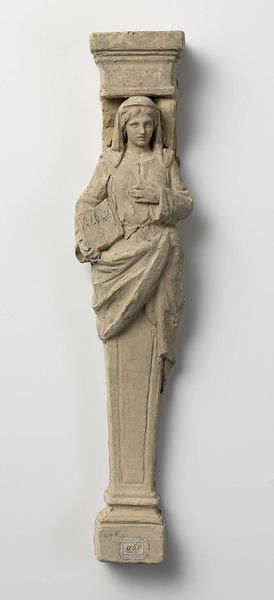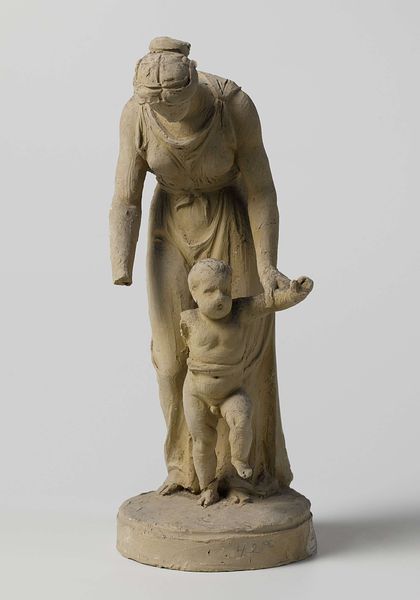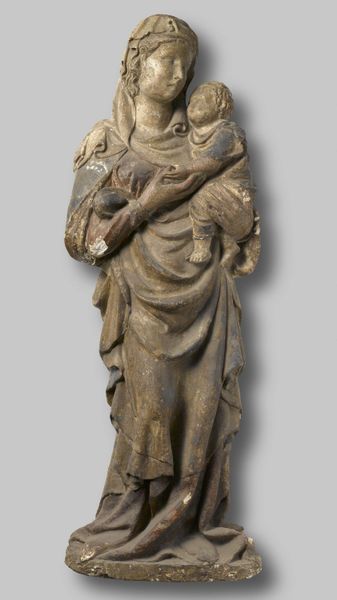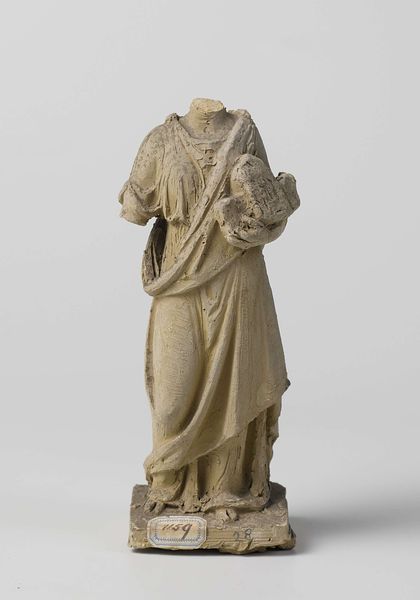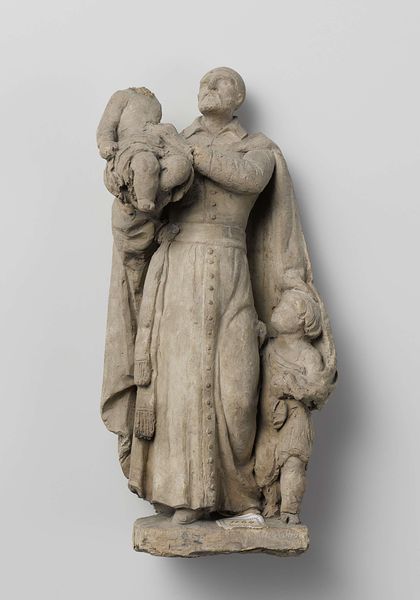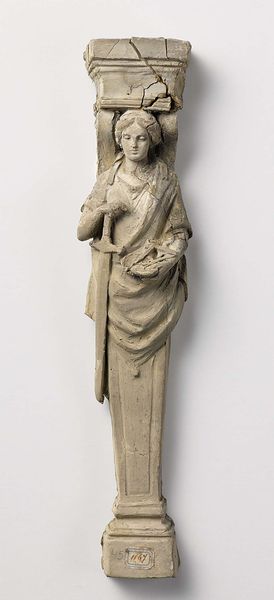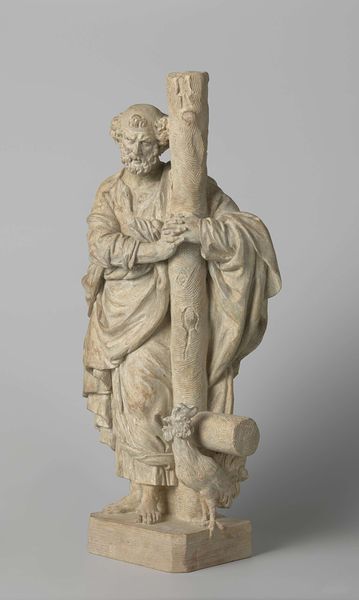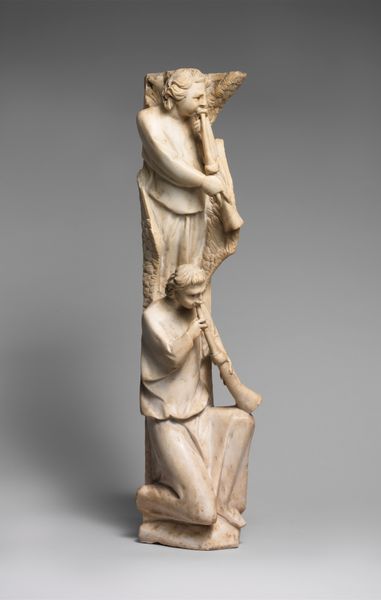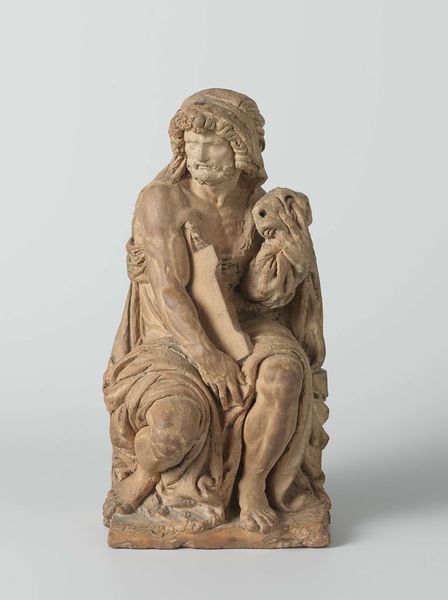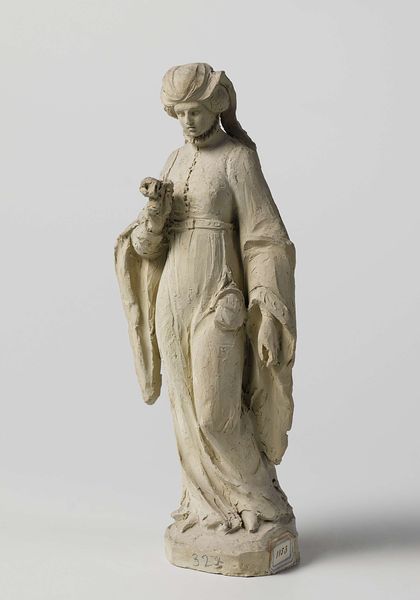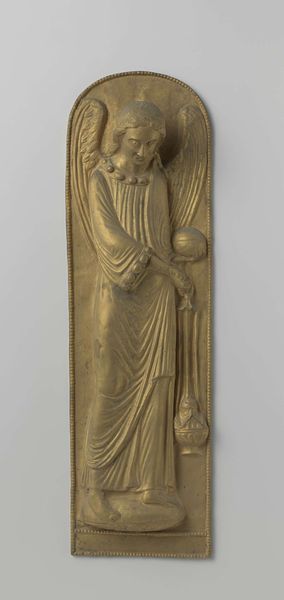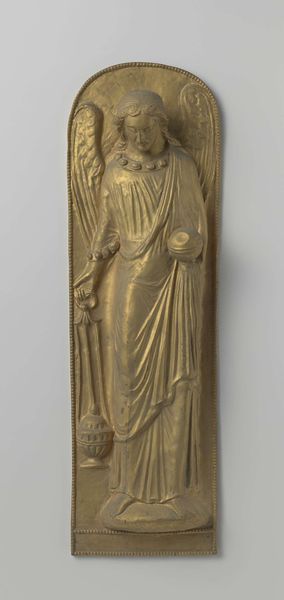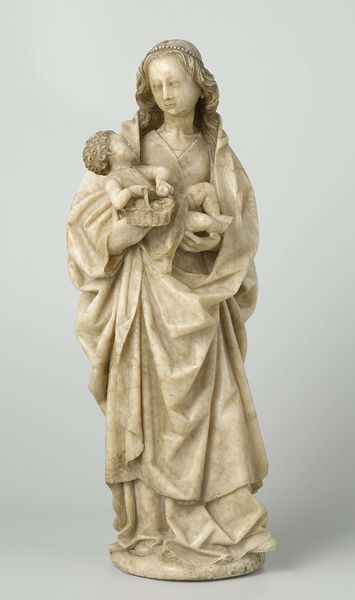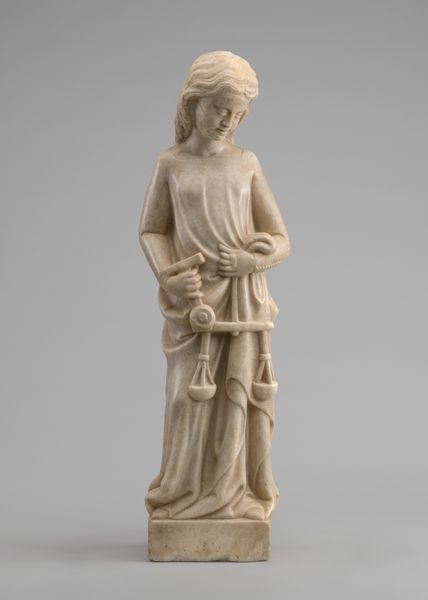
sculpture, marble
#
sculpture
#
figuration
#
vanitas
#
sculpture
#
history-painting
#
marble
Dimensions: height 43 cm, width 8.5 cm, depth 8 cm
Copyright: Rijks Museum: Open Domain
This caryatid, titled "The Medical Science," was created by Eugène Lacomblé in the 19th century, sculpted from plaster. Plaster, though traditionally seen as a humble material, takes on an intriguing form here. Its pale, matte surface and the relative ease with which it can be molded have allowed Lacomblé to render fine details, from the figure's contemplative expression to the folds of draped cloth. The figure is depicted holding a skull, a common symbol of mortality. The choice of plaster, rather than a more noble medium like marble or bronze, speaks volumes. It suggests a wider distribution of the image, a democratization of art. Plaster casts allowed for reproductions, making art accessible beyond elite circles. This caryatid, therefore, reflects broader shifts in society, where knowledge and culture were becoming more widely disseminated. It invites us to consider the social context in which art is made and consumed.
Comments
No comments
Be the first to comment and join the conversation on the ultimate creative platform.
